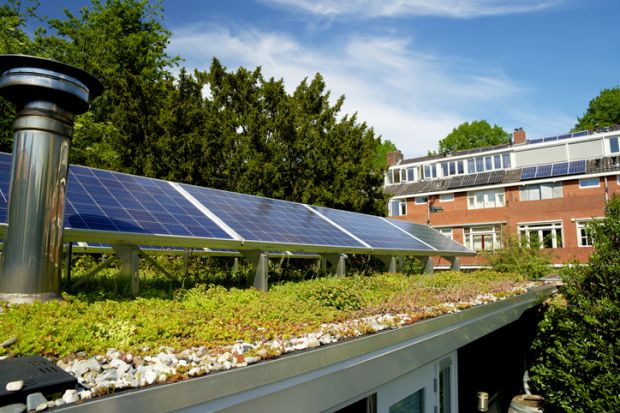Lack of funding is the main obstacle to environmental initiatives in universities across Europe, according to a study.
In a survey of 305 institutions conducted by the European University Association, asked what the key barriers were to implementing “greening” measures, the most popular responses were “general underfunding” (selected by 53 per cent of respondents) and the lack of specific funding incentives (46 per cent).
Respondents also cited the problem that “only few staff engage” (37 per cent) and that activities were “not sufficiently strategised” (34 per cent).
Unsurprisingly, then, asked what the most helpful measure to advance university environmental initiatives would be, the most popular response was enhanced national funding support (selected by 64 per cent of respondents).
Other key enablers cited were peer learning and exchange with other institutions (53 per cent), more European funding support (51 per cent) and more engagement from staff (45 per cent).
Respondents also highlighted the importance of institutional management in driving forward the adoption of climate-friendly measures on campus, with 54 per cent saying that central leadership played an important role in greening measures. Thirty-eight per cent said that there was a specific portfolio in the leadership team.
A report outlining the survey results, by Thomas Estermann, the EUA’s director for governance, funding and public policy development, and EUA policy analyst Luisa Bunescu, recommends that policymakers should increase funding for environmental initiatives in higher education. It suggests that this could come in the form of dedicated grants, affordable loans or tax incentives.
“For universities, underfunding has been a major challenge to maintaining high quality in their main missions of teaching and research, especially since the economic crisis of 2008. New areas for action and increasing demands have also added to the financial pressure,” the report says. “Especially in systems that have not yet returned to pre-2008 levels of funding and which have experienced long periods of cuts, investing in new activities has been difficult.
“Investing in meaningful greening initiatives becomes particularly difficult, especially as they require upfront investment, for instance via major changes to infrastructure.
“Further development of greening activities requires support through a mix of different measures such as a general increase in block grant funding, targeted incentives and the potential integration of new tools into the general university funding model. Sustainability strategies are important, but without financial support, it will be difficult for universities under financial pressure to invest in larger projects.”
Register to continue
Why register?
- Registration is free and only takes a moment
- Once registered, you can read 3 articles a month
- Sign up for our newsletter
Subscribe
Or subscribe for unlimited access to:
- Unlimited access to news, views, insights & reviews
- Digital editions
- Digital access to THE’s university and college rankings analysis
Already registered or a current subscriber? Login









